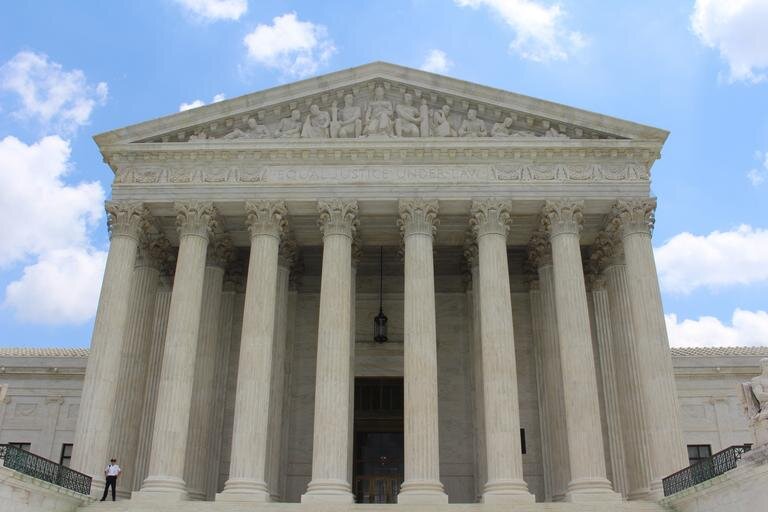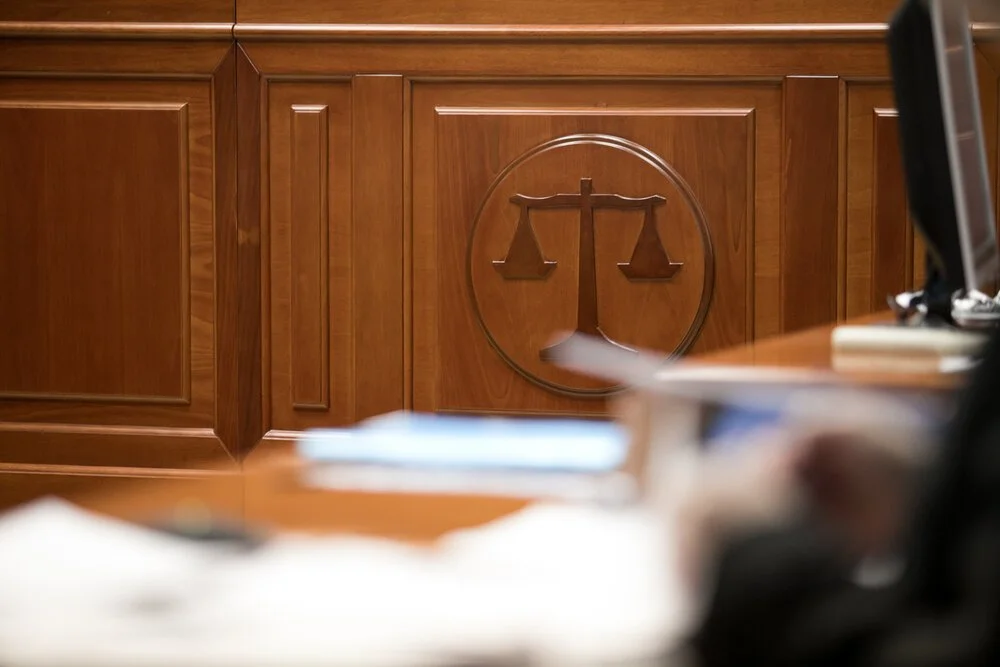On Friday, August 8, Jessica Kitson, Volunteer Lawyers for Justice’s Director of Legal Advocacy and a member of Freedom Network USA, was interviewed on Issues And Ideas With Chris DeBello.
Jessica Kitson Appointed to New Jersey Coalition Against Human Trafficking Board
NEWARK, NJ – Volunteer Lawyers for Justice (VLJ) is proud to announce that Jessica Kitson, VLJ's Director of Legal Advocacy, has been appointed to the Board of Trustees of the New Jersey Coalition Against Human Trafficking (NJCAHT). This appointment underscores Jessica’s commitment to justice and her compassionate expertise in advocating for survivors.
VLJ April 2025 Defender of Justice: Jessica Kitson
When Jessica Kitson joined Volunteer Lawyers for Justice (VLJ) in 2014 as a Managing Attorney, her early work focused on launching the New Jersey Trafficking Victims Legal Assistance Program (now New Jersey Survivors Justice Project). Fast forward to today, and Jessica has become a national expert on legal services for survivors of human trafficking and now serves as VLJ’s Director of Legal Advocacy—overseeing all of the organization’s legal and policy work with the same passion, energy, and heart that’s made her a cornerstone of the VLJ team for over a decade.
Advocates Shine Light On Rash Of Deficient Evictions In NJ
Dorian Bernard remembers his family's old apartment in Irvington, New Jersey, fondly.
The neighborhood was a quiet and close-knit one where he would frequently run into friends he knew from high school when he came back to visit. Growing up there with his brothers, he remembers awards and other keepsakes his mother and father used to display, giving it an atmosphere that was charming, though a little dated, according to Bernard.
Coalition of Tenant Advocates Releases Report Exposing Significant Number of Unjustified Evictions in New Jersey
In a newly released report, Unjustified Residential Evictions in New Jersey, a coalition of tenant advocates including the Housing Justice Project of the Center for Social Justice at Seton Hall Law School, the Lowenstein Center for the Public Interest at Lowenstein Sandler, Volunteer Lawyers for Justice, and the Housing Justice Program at Rutgers Law School, urges the New Jersey courts to improve their process for reviewing residential eviction complaints. The report is based on data collected and analyzed by the coalition that suggests that eviction judgments or defaults are entered against as many as 29,000 tenant families each year in cases where the court lacks jurisdiction.
NJ’s courts and the unfulfilled promise of eviction reform
On Sept. 1, the New Jersey judiciary walked back its effort to reform the eviction process, increasing the already uneven odds against tenants.
Every day, landlords and their lawyers file eviction complaints that do not comply with the law. They fail to provide proper notice, demand illegal rent and fees, and claim as arrears rent that has already been paid. Moreover, the rent they seek is often for property that is dilapidated, leaky, and infested. Most tenants have nowhere to go when rents are high and conditions are appalling; the rental market is the tightest it’s been in years.
Access the entire opinion piece on NJ.com
VLJ Staff Member and Board Trustee Published in NJSBA's New Jersey Lawyer - April 2023
Volunteer Lawyers for Justice staff member Jessica Kitson (Director of Legal Advocacy) and Board Trustee Jessica Hodkinson (Vice President, Chief Legal Officer and Corporate Secretary at Panasonic Corporation of North America) had their article, The Power of Pro Bono Partnerships, published in the New Jersey State Bar Association’s New Jersey Lawyer April 2023 edition.
New Jersey Supreme Court to Begin Scheduling Settlement Conferences This Month
New Jersey's Supreme Court has ordered mandatory settlement hearings in pending landlord-tenant cases and said renters who fail to show up will face an eviction order.
Chief Justice Stuart Rabner's Friday order directs the lower courts to begin scheduling settlement conferences this month prioritizing older cases with the most owed rent or newer cases with more than a year's worth of back rent. He said the courts are facing an enormous backlog that includes 14,000 cases that have been pending for more than a year. Nearly 60,000 evictions were filed between April 2020 and March of this year, according to numbers provided by the courts.
The order came as a surprise to tenant lawyers and advocates who called the consequences cruel and said it would cause confusion since many residents are still waiting for rental assistance. There's also a bill before Gov. Phil Murphy that would end the eviction moratorium earlier depending on people's income and protect tenants from eviction if they certify they applied for help and were financially harmed by the pandemic.
"While I appreciate that there is a backlog and things have to move, it feels as though expediency was prioritized over due process here," said Jessica Kitson, a senior managing attorney for Volunteer Lawyers for Justice. "I'm really disappointed that this is where we are."
Most landlord-tenant trials remain suspended and until now, settlement conferences held remotely between parties were voluntary. Rabner said most of the conferences will continue to take place remotely and the court will provide on-site technology to those who need it. If the parties can't reach an agreement, the case can go to trial; trials are expected to resume Sept. 1.
Landlords who don't show up will have the eviction case dismissed. Tenants who don't appear will have a default judgement entered against them though they won't be physically evicted until the statewide ban on lockouts ends Dec. 31.
Maria Lopez, an organizer with the Ironbound Community Corporation, called the decision catastrophic and said too many tenants will receive default judgements against them. Most don't have legal representation and she said some may not be properly notified of the conference date or may have issues accessing technology.
"During the pandemic we’ve just seen such chasm between the haves and have-nots. We are punishing the most vulnerable," she said. "This seems severe when there are a lot more avenues to be explored in how we are going to resolve this crisis."
Op-Ed: Fix landlord-tenant courts before eviction moratorium ends
Across the country, COVID-19 highlighted long-standing systemic challenges that left many families even more vulnerable in the aftermath of the pandemic. In New Jersey, this was especially true for the state’s eviction process. As an overwhelming number of pending evictions continues to accumulate, the New Jersey Supreme Court has an opportunity to consider changes in landlord-tenant court procedures to make the eviction process fairer for both landlords and tenants, and especially those who do not have attorneys to assist them.





